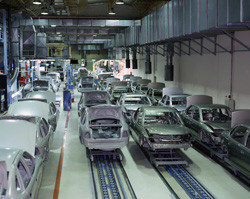Bio-based plastics for automobiles
The food packaging and biomedical sectors have had promising success substituting biodegradable polymers for conventional ones and utilising conventional processing methods and equipment. However, more research is required on injection moulding and thermoforming to ensure that these materials can be validated for the more demanding transport environment. Under the EU-funded ECOPLAST(opens in new window) project, scientists developed new thermoplastic, biomass-based composites and improved processing technologies used in the automobile industry to better handle the new materials. The team focused on adding natural fibres, nanofillers and other materials to conventional polylactic acid (PLA) and polyhydroxybutyrate (PHB). Researchers also developed new biomass-based thermoplastic composites through the synthesis of novel protein-based polymers. Among the numerous accomplishments, scientists identified the components in PHB that lead to fogging and volatile emissions. They replaced them and delivered a new patented formulation for car interiors, which can be processed using conventional methods. They also developed a long-fibre PHB composite by exploiting a flax fabric, filling an important gap as only short-fibre renewable thermoplastics were available. Researchers overcame difficulties of combining hydrophilic wood fibres with hydrophobic thermoplastic matrices by functionalising the surfaces of wood-based fibres. Novel reinforcements for PLA based on nanocellulose and organoclays were also quite promising. Finally, four novel protein-based biopolymers were synthesised and production was scaled up to pilot scale. This brings commercialisation of these novel biopolymers one step closer to realisation. Among the technological advancements are an improvement to extrusion that reduces volatile compounds and thus odour and fogging of PHB. The team also developed a programmable pulse generator that will be quite useful for pneumatic, electric, durability and ageing tests. ECOPLAST efforts produced a variety of materials and processing technologies compatible with automotive requirements and capable of reducing the industry's overall ecological impact. Results were showcased in numerous television and radio interviews, press releases and publications. The efforts are expected to lead to patents and an increase in market share for companies in the consortium.







